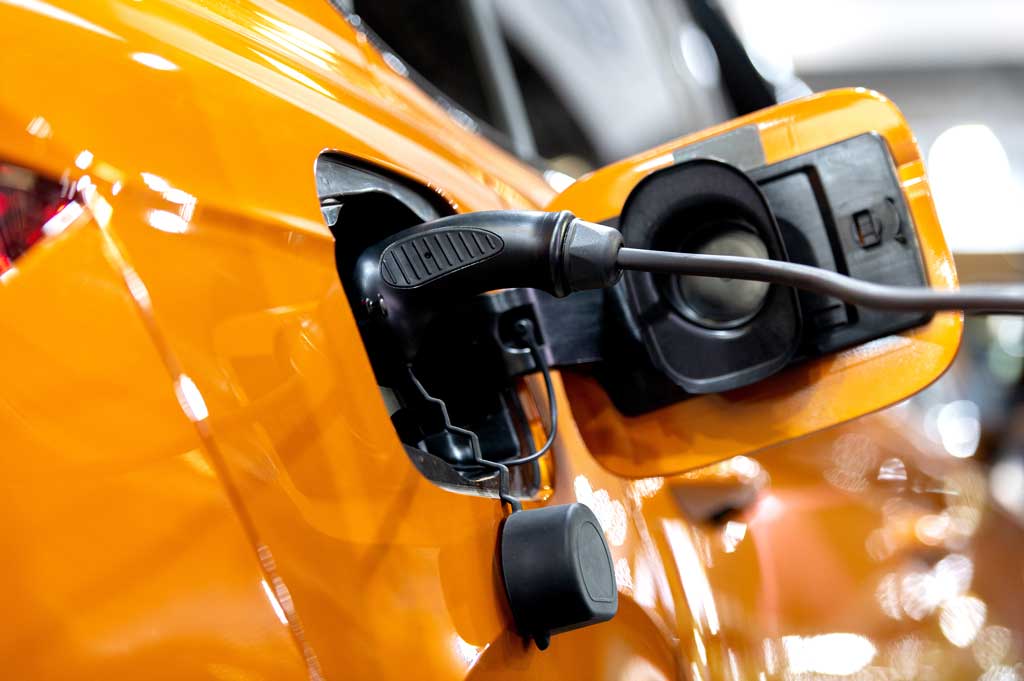
How quickly can the UK make the transition to electric cars? At the moment there is a formal target for the sale of conventional petrols and diesels to end in 2030, with the cleanest hybrids being allowed to continue until 2035. On the face of it, with sales of electric cars taking an ever larger share of the market, there seems to be plenty of momentum towards that goal, but I’m starting to wonder whether increasing economic turbulence might cause a bit of a rethink. I don’t think the purpose or necessity of the changeover itself is likely to be questioned, but I certainly think there is plenty of scope for a bit of adjustment to the detail as problems inevitably emerge.
Take the industrial realities of the switchover. In July, it was reported that Toyota might stop making cars in the UK if its conventional and plug-in hybrids are not deemed to be green enough to be sold between 2030 and 2035. Faced with the possible loss of a major car plant, what government wouldn’t at least consider tweaking the switchover rules to help Toyota, especially if it made only a marginal difference to the overall big picture? The case of Toyota raises the question of whether too aggressive a switchover timetable might drive British car production in general offshore. Certainly, there are bright spots. Bentley is investing £2.5 billion to go electric and Stellantis is turning turning the Vauxhall factory at Ellesmere Port over to the production of electric vans, while big battery plant investments are being made by Britishvolt and Nissan in the Northeast. But for the UK industry to survive the switchover broadly intact, we still need to see transition plans for the remainder of the UK’s car factories, as well as evidence of the further battery plant investments that will be needed to support British car production at current levels post switchover. Given the long lead times for major industrial projects, all of a sudden, 2030 doesn’t seem that far away.
Beyond these questions of long-term industrial capacity, there are more immediate supply chain bottlenecks connected with post-covid recovery and chip shortages that are limiting production of all cars, including electric vehicles. Battery prices were previously on a long-term downward trend, helping manufacturers to boost range and edge EV prices down towards those of fossil-fuelled cars, but now that process is being reversed, with shortages of materials such as cobalt, lithium, and nickel making batteries more expensive again. Ford has already increased prices in the USA for its F-150 Lightning electric pick-up in response, and the Mustang Mach-E has gone up in price by up to a whopping £9,230 in the UK in recent months. Add in headwinds such as the withdrawal of the plug-in grant, and grumbles from electric newbies as they discover the reality of relying on the public charging infrastructure, and it’s not hard to see why some would-be switchers might be getting cold feet – especially if they have to wait a year or two for an in-demand electric model.
Of course, the switchover that really counts for reducing emissions isn’t the change in the mix of new cars being delivered, but the extent of the switch to electric in the total UK vehicle population, or parc. Clearly, the two are related, since the parc is constantly being replenished by new vehicle deliveries (as well as being trimmed by scrappage), but with cars typically having a life of more than thirteen years, changes in the mix of the parc are obviously going to lag well behind the pace of the changeover to electric in new car deliveries. Electric cars now account for more than a tenth of new car sales but still only make up about 1.5% of the total UK parc of 35 million. This is important, because many more drivers buy used cars rather than new, so the switchover can’t really take place until lots of people are buying second-hand EVs – but according to the SMMT, electrics only accounted for a tiny 1% of all UK used car sales in the second quarter of this year. This means that for the average car buyer, going electric is still actually quite a remote prospect. More second hand EVs will come through eventually, but not for a few years yet.
The government’s stated ambition is for the switchover of the UK vehicle parc to electric to be substantially completed by 2050. I still think that’s eminently doable, but expect a few pragmatic policy tweaks to deal with the inevitable problems as they arise along the way.
© Motorworld Media 2023
Registered Office: 4 Capricorn Centre, Cranes Farm Road, Basildon, Essex. SS14 3JJ
Company Number: 8818356
Website designed by Steve Dawson
One Response
Oh how disappointing!
TOYOTA is trying to blackmail a/any delay by any means whatsoever the agreed dates for the UK to stop Internal Combustion Engine vehicles being sold!
Anyone who cares to side with this blackmail strategy DOES NOT CARE ABOUT OUR PLANET!
I am sick to death of various short sighted individuals and organisations finding one lame duck reason after another to delay what we MUST DO for our children and grandchildren.
It is almost like gross stupidity in the face of a present day threat to our planet.
GOD HELP US! A terrible simplistic hollow biased motoring media article. I PITY YOU!